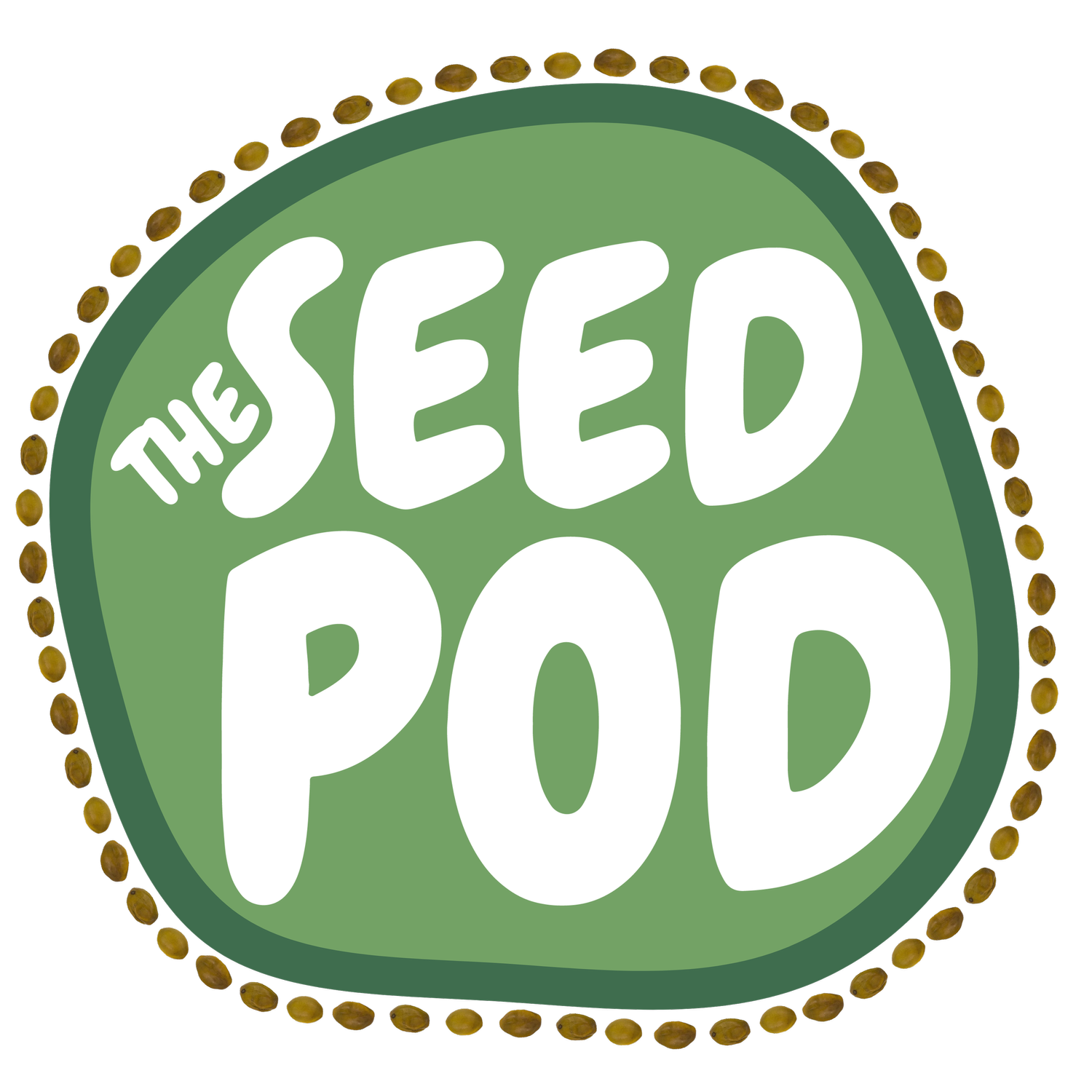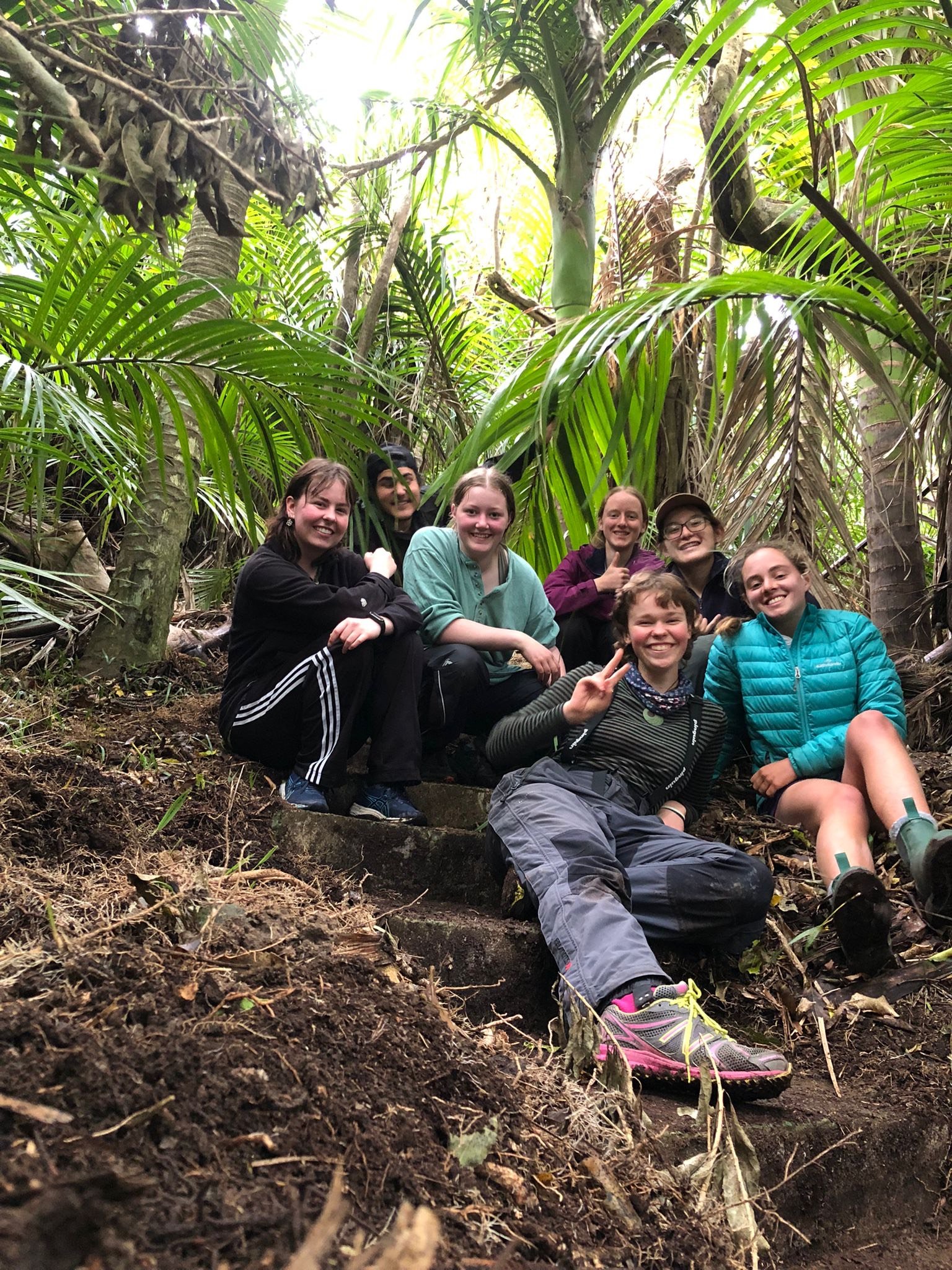Episode 7
In Episode 7 of The Seed Pod. Jess shares stories about trail running, the magic of composting and creating nutrient-rich soils, the behind-the-scenes of a recycling centre, biking to zero-waste food stores, foraging, and wallabies in NZ.
We are going to dive deeper into one of her stories in this Learning Pod using a Play - Observe - Discover - Share structure.
Observe
In Jess’ story she talked about the huge amount of recycling being produced, and how recycling centres often receive too much recycling to process.
For this activity, we have selected a range of recyclable items that we want to send to the recycling centre. You will need to group/sort your recycling into the same types and see what fits into the recycling grid, and what doesn’t.
There are no right or wrong answers, anything that doesn’t fit in your grid will be used to investigate ways to reduce, reuse and repurpose, making sure those resources are not wasted.
Printable Activity Sheets HERE.
Optional: Do you have items at home/school that you reuse, or repurpose?
We’d love to hear about your creative uses for recyclable items!
Discover
When we think about recycling we often think about household recycling, rather than natural recycling processes called decomposition.
Local decomposers are typically invertebrates, bacteria, or fungi that break down nature’s ‘waste’ into soil.
Let’s dive into nature’s recycling heroes! Draw some of your local decomposers and then investigate which decomposers play a part in breaking down different types of resources.
Are the recycling heroes the same for each resource, or do they have different jobs within nature’s ‘recycling centre’?
Printable ID Sheet HERE
Printable Activity Sheet HERE
Share
Share your stories with us at: theseedpod@outlook.com
This is a place for sharing stories and contributions from our community.
Poppy’s Story:
“The predator free 2050 kaupapa aims to suppress all invasive predators enough that our native populations of birds and reptiles have the space to thrive once again. It can feel like an unreachable goal, but well over 100 predator free islands have already been established, and their impact is overwhelming.
Each December, the Untouched World Foundation invites a group of highschool and tertiary-age students to contribute to one such island, Ōruawairua in the Marlborough Sounds. UWF has been working on this island since 2002 and it is now home to the largest population of Kākāriri-Karaka (a parakeet otherwise endemic to the Canterbury region) in the world.
This program is about to kick off again, and if you’re curious about this kaupapa, I highly encourage you to apply for 2025! With getting to noho at Waikawa marae, participate in rigorous bio-security with DOC, and exist in a place completely free of invasive threats, this program made a huge impact on me in 2023. I cannot recommend it enough.”
- Poppy Johnston-Coates
We hope you enjoyed this Learning Pod!
If you have any feedback or photos/stories/art to share please get in touch!












